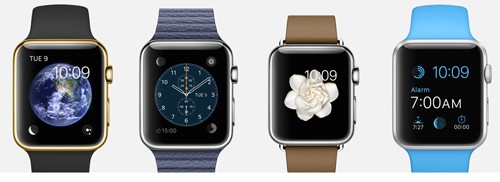
Americans want to use health apps and wearable devices to improve their personal health, according to the findings from the fifth annual Makovsky/Kelton Pulse of Online Health Survey.
This year’s report, which surveyed over 1,000 people in January 2015, reveals that US consumers are ready to disclose online personal health data as a path to improve treatment options.
Trust and quality of health information were also found to be important factors in consumer selection of online health sources.
Gil Bashe, executive vice president at Makovsky Health, said: “Smartphones and wearables are driving a major behavioural shift in consumer health and wellness.
“Beyond a desire to speed access to information, consumers are using technology to engage proactively in managing their health – and a personality of ‘search’ is influenced by specific medical conditions. We also see stark differences between millennials and those 66 and older in this year’s survey. Savvy health marketers will apply these insights to engage and involve patients in more meaningful, customised ways.”
Mobile health platforms, in particular, represent a huge opportunity to improve health, according to the report.
It found that almost two-thirds (66%) of Americans would use a mobile app to manage health-related issues. Millennials are leading the digital health charge, as they are more than twice as likely to express interest in using a mobile app to manage their health compared to those Americans aged 66 and older.
Most common motivators for using a mobile app vary across health conditions. More than six in 10 (63%) Americans with gastrointestinal conditions would use mobile health apps to track diet and nutrition. Among obese or overweight consumers, 61 % would make use of a mobile app to communicate with a doctor.
Trust and quality sources for healthcare information are important to consumers, and people are three times more likely to look to WebMD (57%) over government-affiliated websites such as the CDC (17%) or FDA (16%).
Among the 91% of Americans who would search online for health information, condition management (58%), exploring symptoms (57%), and researching a prescribed treatment (55%) are the most popular motivators.
In contrast, if consumers were diagnosed with a medical condition, they would be most likely to research symptoms (41%), treatment options (26%), and specialised doctors and care facilities (18%).
Pharma websites
Of the 80% of Americans willing to visit a pharma-sponsored website, those 66 and older were more likely to visit the site if a healthcare professional recommended it (52%).
When it comes to social media, millennials are 25% more likely to trust a pharma-sponsored platform than those 66 and older (31% vs. 6%).
Social media lacks authority with the general population as 79% of respondents reported they trust these channels either “a little bit” or “not at all”.
Patients with a diagnosed chronic medical condition, however, report “complete trust” in these channels at nearly double the rate of the average population.




